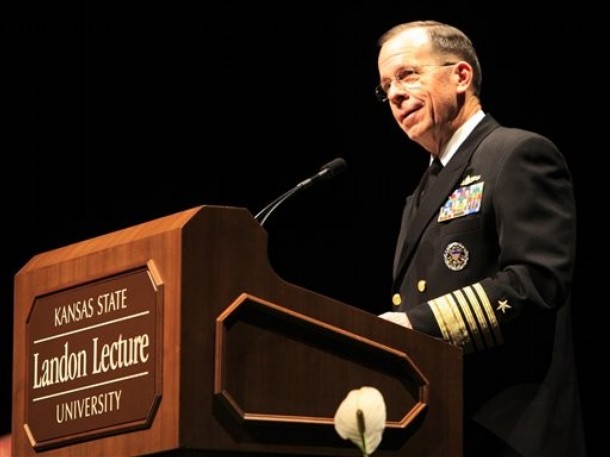Admiral Mullen addresses the new American way of war.

There's a curious contradiction at the heart of Admiral Michael Mullen's recent speech on American military strategy:
I've watched and advised two administrations as they have dealt with this struggle. And I've come to three conclusions - three principles - about the proper use of modern military forces. The first is that military power should not - maybe cannot - be the last resort of the state. Military forces are some of the most flexible and adaptable tools to policymakers. We can, merely by our presence, help alter certain behavior. Before a shot is even fired, we can bolster a diplomatic argument, support a friend or deter an enemy. We can assist rapidly in disaster-relief efforts, as we did in the aftermath of Haiti's earthquake. We can help gather intelligence, support reconnaissance and provide security.
Then, not a few grafs later:
U.S. foreign policy is still too dominated by the military, too dependent upon the generals and admirals who lead our major overseas commands. It's one thing to be able and willing to serve as emergency responders; quite another to always have to be the fire chief.
I wonder how these two assertions can fit together. Under Mullen's conception of how military force should be used, it's only natural that the military will continue to dominate foreign policy. If we view the use of force not as a last resort, not as something that is called upon in times of true national emergencies but as just another tool in our diplomatic kit, then by virtue of the Defense Department's huge size, it's naturally going to dominate our foreign policy. Only a very restrained view of when it's appropriate to send in the Marines will actually shift the balance of foreign policy making power back to the civilians.
(AP Photo)











